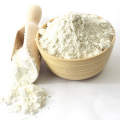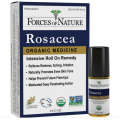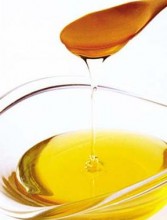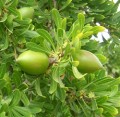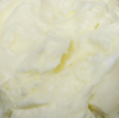 Loading... Please wait...
Loading... Please wait...- Home
- About Us
- Shipping, Returns & FAQ's
- Contact Us
-
For Your Information
- Canadian Customers Have a Choice if Shipping Via UPS
- Aura Cacia Homemade Aromatherapy Recipes
- Bella Nella Altered Art & Paper Crafts Blog
- Forms of Herbal Preparations
- Laundry Tips To Conserve Energy Blog from The Laundress
- The Story of Frontier Natural Products Co-Op
- Sovereign Silver Hydrosol and Aloe Protocol Stops Downward Spiral of Gut Dysbiosis
- Disclaimers
- Recommended Links
- RSS/Recent News
- The Story of Typhoon Housewares
- Reviews/Testimonials
- Raw Ingredients for Mfg
- Home
- Aromatherapy
- Carrier Oils
- Evening Primrose Oil Cold Pressed Unrefined Organic Bulk
- Home
- Raw Materials
- Oils
- Evening Primrose Oil Cold Pressed Unrefined Organic Bulk
Evening Primrose Oil Cold Pressed Unrefined Organic Bulk
Product Description
 Evening primrose oil is the oil from the seed of the evening primrose plant. Evening primrose oil is used for skin disorders such as eczema, psoriasis, and acne. It is also used for rheumatoid arthritis, weak bones (osteoporosis), Raynaud's syndrome, multiple sclerosis (MS), Sjogren's syndrome, cancer, high cholesterol, heart disease, a movement disorder in children called dyspraxia, leg pain due to blocked blood vessels (intermittent claudication), alcoholism, Alzheimer's disease, and schizophrenia.
Evening primrose oil is the oil from the seed of the evening primrose plant. Evening primrose oil is used for skin disorders such as eczema, psoriasis, and acne. It is also used for rheumatoid arthritis, weak bones (osteoporosis), Raynaud's syndrome, multiple sclerosis (MS), Sjogren's syndrome, cancer, high cholesterol, heart disease, a movement disorder in children called dyspraxia, leg pain due to blocked blood vessels (intermittent claudication), alcoholism, Alzheimer's disease, and schizophrenia.
Some people use evening primrose oil for chronic fatigue syndrome (CFS); asthma; nerve damage related to diabetes; an itching disorder called neurodermatitis; hyperactivity in children and attention deficit-hyperactivity disorder (ADHD); obesity and weight loss; whooping cough; and gastrointestinal disorders including ulcerative colitis, irritable bowel syndrome, and peptic ulcer disease.
Women use evening primrose oil in pregnancy for preventing high blood pressure (pre-eclampsia), shortening labor, starting labor, and preventing late deliveries. Women also use evening primrose oil for premenstrual syndrome (PMS), breast pain, endometriosis, and symptoms of menopause such as hot flashes.
In foods, evening primrose oil is used as a dietary source of essential fatty acids.
In manufacturing, evening primrose oil is used in soaps and cosmetics.
In Britain, evening primrose oil used to be approved for treating eczema and breast pain. However, the Medicines Control Agency (MCA), the British equivalent of the US Food and Drug Administration (FDA), withdrew the licenses for evening primrose oil products marketed as prescription drug products for these uses.
The rich stores of essential fatty acids in evening primrose oil not only prevent nails from cracking but also help to keep them generally healthy. In addition, the essential fatty acids nourish the scalp, making the supplement potentially valuable in treating a variety of hair problems. When it comes to hair, hormones play a significant role—including in the hair pattern found on your head, as well as the rest of your body.
Essential omega-6 fatty acid, GLA, which comes from consuming capsules of evening primrose oil, can be highly effective in the fight against hair loss. Try taking 500 milligrams twice a day—you will begin to see results in six to eight weeks.
You can also rub evening primrose oil into your hair or add it to your shampoo. In a study done at the University of Maryland, 86 people who were experiencing hair loss massaged their scalps with essential oils. They did this daily for seven months; at the end, those who used essential oils daily noticed significant hair regrowth. Besides using evening primrose oil for this remedy, try lavender, cypress, and lemongrass essential oils too.
How does it work?
Evening primrose oil contains "fatty acids." Some women with breast pain might not have high enough levels of certain "fatty acids." Fatty acids also seem to help decrease inflammation related to conditions such as arthritis and eczema.
Botanical Name: Oenothera biennis
aka: Aceite de Onagra, Acide Cis-linoléique, Cis-Linoleic Acid, EPO, Evening Primrose Seed Oil, Fever Plant, Herbe-aux-ânes, Huile de Graines d'Onagre, Huile D'Onagre, Huile de Primerose, Huile de Primevère Vespérale, Jambon de Jardinier, Jambon du Paysan, King's Cureall, Mâche Rouge, Night Willow-Herb, Oenothera muricata, Oenothera purpurata, Oenothera rubricaulis, Oenothera suaveolens, Œnothère, Oil of Evening Primrose, Onagra biennis, Onagraire, Onagre Bisannuelle, Onagre Commune, Primevère du Soir, Primrose, Primrose Oil, Scabish, Sun Drop
Origin: China
Notes: COR Kosher Certified. Certified Organic by QAI. Non-irradiated. Non-GMO. Certified VegeCert Vegan.
Specifications are subject to change without notice.
* FDA disclaimer
References
webmd
Herb Wisdom
aloha
You Recently Viewed...
Currency Converter
Choose a currency below to display product prices in the selected currency.




